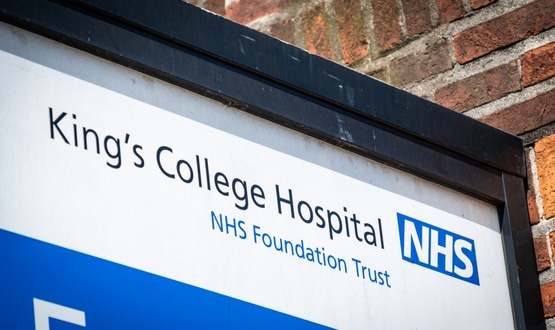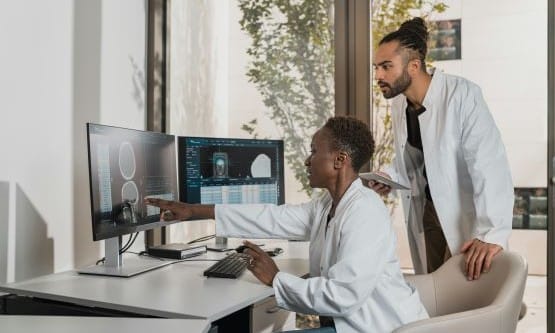Study shows ROI on mobile technology in NHS
- 22 November 2005
A study jointly commissioned by George Eliot Hospital NHS Trust and NHS Connecting for Health into the impact of mobile technology in acute clinical environments has identified significant potential time and resource savings.
The findings suggest that investment in mobile networks, devices and wireless-enabled applications can deliver a measurable return on investment (ROI) for healthcare organisations by helping streamline processes.
The study led by Intel’s professional consulting organisation, Intel Solution Services, sought to take advantage of a recently installed wireless network at George Eliot Hospital.
Over a six week period a range of nursing and medical staff at the trust were provided with a pool of 20 wireless tablet PCs, powered by Intel Centrino mobile technology. In addition, clinicians with their own wireless PDAs were connected to the network.
"We were able to show the tangible benefits, but the question now is how do we scale this up," said Tristram Wilkinson, Intel’s UK director of public sector told E-Health Insider.
The tablet PCs mainly ran an application from Indigo4 called Review – a system that until now is usually run off desktop PCs.
Review provided general and speciality nurses, senior house officers and consultants with immediate access to patients’ pathology results and radiology reports. The Review system which has so far been implemented at five other large acute hospitals in the North West & West Midlands cluster of the NHS National Programme for IT.
Clinical and IT staff received relevant training prior to and during the deployment. Feedback was gathered through structured interviews and online questionnaires, as well as regular visits to the wards and drop-in meetings with mobile clinical staff.
Duncan Robinson, George Eliot’s Head of IT, said, “We have had to give the clinicians training in accessing the pathology and radiology systems," But he added, "There has been some quite significant time-saving demonstrated and by the end of the pilot we had staff queuing to take advantage of the mobile solution."
Specific benefits delivered to clinicians and included reductions in the amount of time spent locating pathology results; a reduction in the community monitoring of patients with chronic conditions; less time taken to retrieve surgery notes at follow-up; and reductions in the time taken charting patients.
Savings identified by the study included:
- Locating pathology results during a clinic visit: consultant and nurse saved 5 minutes each per patient.
- Community monitoring of chronic patients: nurses saved 45 minutes daily.
- Recording and filing surgery notes: administrative staff and consultant saved 20 minutes per procedure.
- Retrieving surgery notes at follow-up visit: saved 10 minutes per patient visit.
- Charting of inpatients: ward nurse saved 10 minutes per shift, medical staff on wards saved 20 minutes per shift.
- Scanning of pre-op patients: nurses saved 45 minutes per shift.
A further key finding of the study was its calculation that savings generated by the use of mobile applications and devices would enable the pilot to deliver ROI in 15 months. It concluded that if the same technologies were extended to a larger staff pool, ROI would occur in just five months.
Kevin Hudson, Indigo 4’s commercial director, said, “Review’s debut in a mobile setting provides nursing and medical staff with the means to access vital patient information when and where they need it.”
Intel’s Wilkinson told EHI that the company had been engaged with NHS CfH for about 18-months "looking at technology advances and how they can be applied to hospitals and the wider healthcare sector, including people in their own homes".
He said that the advent of next generation of wireless technology, known as WiMax, would make it possible to easily provide wireless connectivity in the community and rural areas. At present many WiFi nodes are needed to cover a single hospital, but with WiMax a single base station should cover an entire town or area.
"We are exploring potential trials in Healthcare, but we will be looking to address and put into action," said Wilkinson.
Turning to the current wireless technology he told EHI that Intel "remained open to working with other NHS trusts that want to do similar trials."
Trusts interested in exploring a possible wireless trial with Intel should email Intel’s Tristram Wilkinson: mailto:tristan.wilkinson@intel.com




